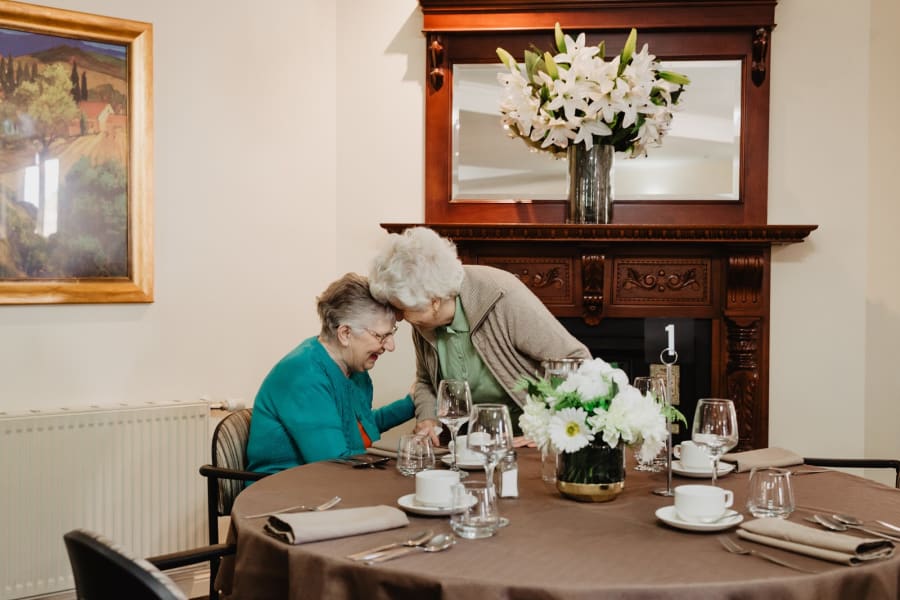

Palliative care services in Berwick offer a comprehensive support system for individuals facing life-limiting illnesses. These services focus on providing comfort, pain management, and emotional support to improve the quality of life for patients and their families.
In Berwick, palliative care services are tailored to meet the unique needs of each individual. This may include symptom management, spiritual care, counseling, and assistance with advanced care planning. The goal is to address not only physical symptoms but also emotional and spiritual needs during this challenging time.
The team of healthcare professionals in Berwick who provide palliative care includes doctors, nurses, social workers, chaplains, and other specialists who work together to ensure holistic care for patients. They collaborate with the patient's primary care physician to develop a personalized care plan that meets the individual's goals and wishes.
Palliative care services in Berwick also extend beyond medical treatment to include practical support such as assistance with daily activities, caregiver respite, and coordination of community resources. This comprehensive approach helps patients live as comfortably as possible while maintaining dignity and autonomy.
Overall, palliative care services in Berwick are designed to provide compassionate end-of-life care that honors the individual's values and preferences. By addressing all aspects of well-being physical, emotional, social, and spiritual these services help improve the quality of life for patients and their families during a difficult time.
Palliative care practices aim to provide holistic support to patients facing life-limiting illnesses, focusing not only on physical symptoms but also on emotional and spiritual well-being. Integrating spiritual and emotional support into palliative care can greatly enhance the quality of life for patients and their families.
Spiritual Support: Spiritual support in palliative care involves addressing the existential concerns and beliefs of patients, providing comfort, meaning, and hope during a challenging time. Chaplains or spiritual counselors play a crucial role in offering guidance, prayer, rituals, or simply a listening ear to patients seeking spiritual solace.
Emotional Support: Emotional support is essential in helping patients cope with fear, anxiety, grief, and other complex emotions that may arise during their illness. Social workers, psychologists, or counselors can assist patients in processing their feelings and developing coping strategies to navigate the emotional challenges they face.
Benefits of Integration: Integrating spiritual and emotional support into palliative care practices can lead to improved patient outcomes such as reduced pain perception, better symptom management, enhanced quality of life, increased sense of peace and comfort, and strengthened relationships with loved ones. It can also help alleviate distress among family members who are often deeply affected by the illness of their loved one.
Collaborative Approach: Effective integration of spiritual and emotional support requires a collaborative approach involving interdisciplinary team members working together to address the diverse needs of each patient. This teamwork ensures that all aspects of care are considered holistically and that interventions are tailored to meet individual preferences and beliefs.
Cultural Sensitivity: Cultural sensitivity is paramount when providing spiritual and emotional support in palliative care as beliefs about death, dying, suffering, and afterlife vary widely across different cultures. Healthcare providers must be respectful of cultural differences and adapt their approach accordingly to ensure that care is delivered in a culturally appropriate manner.
Training for Healthcare Providers: Healthcare providers involved in palliative care should receive training on how to effectively integrate spiritual and emotional support into their practice. This training should include education on communication skills, active listening techniques, cultural competence, self-care strategies for managing emotional stressors related to caring for terminally ill patients.

Taking care of elderly individuals can be a rewarding and fulfilling experience, but it also comes with its own set of challenges.. Caregivers in the aged care sector often face high levels of stress and burnout due to the demanding nature of their work.
Posted by on 2024-10-23

Navigating the complex world of aged care can be overwhelming and confusing, but you don't have to do it alone.. Seeking support from community resources and support groups can provide you with the guidance and confidence you need to make informed decisions for yourself or a loved one. Community resources such as senior centers, local councils, and government agencies can offer valuable information on aged care services, eligibility criteria, and financial assistance options.
Posted by on 2024-10-23

As the elderly population continues to grow, so does the need for adequate mental health care in aged care facilities.. However, there are numerous challenges and barriers that hinder the effective addressing of mental health needs in these settings. One major challenge is the stigma surrounding mental health issues among the elderly.
Posted by on 2024-10-23

Recent policy changes have had a significant impact on aged care services across the country.. As the government continues to implement new regulations and guidelines, it is important to review how these changes are affecting the quality of care for our elderly population. One key area that has seen considerable attention is funding for aged care services.
Posted by on 2024-10-23
Exploring the options for end-of-life care and decision-making in the context of palliative care is a crucial aspect of ensuring that individuals receive the appropriate support and treatment during their final days. This process involves considering various factors such as the individual's wishes, values, and preferences, as well as consulting with healthcare professionals and loved ones to make informed decisions.
Palliative care aims to improve the quality of life for individuals facing serious illness by addressing their physical, emotional, and spiritual needs. It focuses on providing comfort and support rather than cure, allowing individuals to live well until the end. When it comes to end-of-life decision-making, it is important to have open and honest conversations about one's goals of care, treatment options, and potential outcomes.
Exploring the options for end-of-life care may involve discussing advance directives, such as living wills or healthcare proxies, which outline an individual's preferences for medical treatment in case they are unable to communicate their wishes. These documents can help ensure that one's desires are respected and followed during critical moments.
Additionally, exploring the options for end-of-life care may involve considering different types of palliative care services available, such as hospice care or home-based palliative care. These services provide specialized support tailored to meet the unique needs of individuals nearing the end of life.
Ultimately, exploring the options for end-of-life care and decision-making requires thoughtful consideration, communication, and collaboration between individuals, healthcare providers, and loved ones. By engaging in these discussions proactively, individuals can ensure that their wishes are honored and that they receive the compassionate care they deserve during this challenging time.

2. How can palliative care benefit elderly individuals in Berwick who are receiving aged care services?
3. Who provides palliative care services for elderly individuals in Berwick receiving aged care?
4. Are there specific requirements or eligibility criteria for accessing palliative care services in Berwick for elderly individuals in aged care facilities?